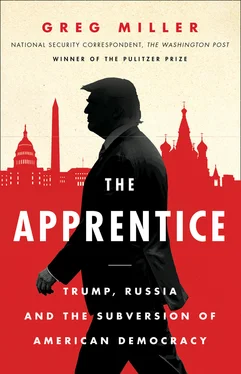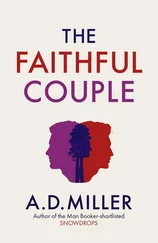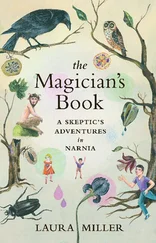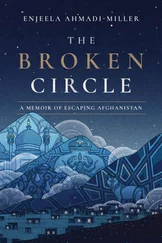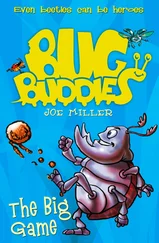DNC officials had shared their account with Nakashima on the condition that it not be published until the committee’s networks had been secured. She began composing a draft of the article and made plans with editors to put the story online on Monday, June 13. But on Sunday the twelfth, as the DNC team was completing its scrub, devastating news broke in Florida: Omar Mateen, a twenty-nine-year-old security guard, had opened fire in the packed Pulse nightclub in Orlando, killing forty-nine people and wounding fifty-three others—then the deadliest mass shooting by a single gunman in U.S. history.
The Post put the hacking story off for an extra day. At 11:30 A.M. on Tuesday it appeared atop the paper’s website, opening, “Russian government hackers penetrated the computer network of the Democratic National Committee and gained access to the entire database of opposition research on GOP presidential candidate Donald Trump.”[3] The article emphasized that the hackers had been expelled from the DNC’s systems over the preceding weekend and quoted a range of officials and experts casting the intrusion as a classic case of cyber espionage. Moscow, it was agreed, was far more likely to hoard the stolen material and mine it for insights that could provide critical leverage in global affairs. The prospect that Russia would wage an unprecedented campaign of information warfare—sowing doubt about the democratic process, damaging the candidacy of Hillary Clinton, and ultimately seeking to help elect Donald Trump—was beyond imagining at that moment. Kremlin spokesman Dmitry Peskov quickly denied any Russian involvement.
On June 15, within twenty-four hours of the Post ’s story, the website The Smoking Gun posted a story saying it had been contacted by an “online vandal” using the name Guccifer 2.0. Elaborating on a blog site, he claimed to be flattered by accounts depicting the operation as “sophisticated,” insisting that “in fact, it was easy, very easy.” He insisted he was not Russian, but a Romanian who had chosen his moniker partly to honor his hacking predecessor Guccifer but also because he loved the Gucci brand. “I’m a hacker, manager, philosopher, woman lover,” he proclaimed. But in online correspondence with journalists, his persona seemed to crack. Posed questions in Romanian by the journalist Lorenzo Franceschi-Bicchierai, writing for the online tech publication Motherboard, Guccifer 2.0’s responses came back in fractured syntax that seemed to betray a reliance on Google Translate. In subsequent exchanges, his online personality seemed to shift, suggesting more than one hand was operating the Guccifer 2.0 persona.
To establish his credentials, he passed along a collection of pilfered DNC documents. The files included internal memos and a list of donors that catalogued six-figure contributions to the party from, among others, movie star Morgan Freeman, director Steven Spielberg, and Hollywood executive Jeffrey Katzenberg. Guccifer 2.0 referred those interested to the DCLeaks website that GRU hackers had set up in April and where even more DNC material was now placed. The document that got the most attention was a 237-page collection of DNC opposition research.
Marked confidential, “Donald Trump Report” was a sprawling catalogue of Trump’s perceived political vulnerabilities, recounting his privileged upbringing, his lawsuits and bankruptcies, affairs and broken marriages, vacillating party affiliations, crass comments about women, fierce verbal attacks on Muslims, penchant for falsehoods, and alleged racism. “One thing is clear about Donald Trump,” read the file’s first sentence. “There is only one person he has ever looked out for and that’s himself.”
To Democrats, all of this added up to a portrait of an ideal opponent, someone who by any conventional standard had to be considered unelectable. But damning as it was, the material laid out in the document was, for the most part, already widely known. If Democrats were hoarding any bombshells, they weren’t listed in the pages of its “Donald Trump Report.”
Guccifer 2.0’s message labored to divert suspicion from Russia. “Hi. This is Guccifer 2.0 and this is me who hacked Democratic National Committee,” it said. The writer offered a brief account of his or her exploit, explaining that it involved breaching “mail boxes of a number of Democrats” and then exploiting the information to get “into committee servers.” The hacker claimed to have been inside the DNC network for more than a year and stolen “thousands of files and mails.”
In reality, Guccifer 2.0 was a GRU creation, an online persona operated by the same hackers who had rampaged through the DNC and DCCC networks. On June 22, one week after Guccifer 2.0’s debut, the Russian hackers behind this online puppet got a message from an eager ally in their unfolding operation against Clinton: WikiLeaks. The organization, determined not to watch from the sidelines, urged Guccifer 2.0 to send “any new material here for us to review and it will have a much higher impact than what you are doing.” Weeks later, WikiLeaks was pleading again for access to the trove, saying, “if you have anything Hillary related we want it,” noting that the Democratic convention was rapidly approaching and unless the digital saboteurs intervened “she will solidify Bernie supporters behind her.”
THE UNITED STATES AND WIKILEAKS HAD BEEN IN A STATE OF OPEN hostility since the group in 2010 published half a million military records from Afghanistan and Iraq and approximately 250,000 diplomatic cables. That release triggered a criminal investigation of WikiLeaks and indirectly led its Australian founder, Julian Assange, to seek asylum in Ecuador’s embassy in London. Assange had been accused of sexual assault in Sweden and said he feared that if he was extradited there to face charges, he would be ultimately transferred to the United States, regardless of the outcome of any court proceeding in Sweden.
Yet while WikiLeaks professed to be concerned only with demolishing the wall of secrecy maintained by the powerful, its publication of confidential information—couched as a moral imperative—has been consistently amoral, with no concern for how such revelations might damage those whose names turned up in the material. Without notable regret they have publicly released a wealth of personal data belonging to people who have little to do with their larger political causes, including credit card numbers, medical records, and Social Security numbers.
Assange, who has hosted a talk show on RT, the Kremlin’s propaganda channel, has made no effort to hide his own disdain for the United States or his relish at the prospect of its downfall. With “a faint smile,” he told The New Yorker in 2017 that the American empire might finally be collapsing. Although Assange denied that Russia was his source for the DNC emails, he has never much cared how he obtains what he publishes. “If it’s true information, we don’t care where it comes from,” he once said. “Let people fight with the truth, and when the bodies are cleared there will be bullets of truth everywhere.”[4] That disregard for sources was matched by an increasing affection for authoritarian leadership (including his own of WikiLeaks) that would eventually place him firmly in the pro-Trump camp.
After a series of failed attempts to transfer the stolen documents to WikiLeaks, Guccifer 2.0 sent the organization an email with an attachment—“wk dnc link1.txt.gpg.” It arrived on July 14 with instructions on how to unzip the trove. Four days later, WikiLeaks responded that it had accessed “the 1 Gb or so archive” and would begin publishing “this week.”
CHAPTER 3
MOTHS TO THE FLAME
AVOIDING THE MAIN LOBBY AS A SECURITY PRECAUTION, DONALD Trump was escorted through a loading dock, into a freight elevator, and up to The Washington Post publisher’s suite on the ninth floor. As he made his way into a March 2016 meeting with the paper’s editorial board, the Republican candidate walked past historic plates of the Post ’s front pages lining the walls. On them were headlines that marked Hitler’s rise to power, America’s plunge into World War II, and the U.S. blockade of Cuba as the Soviet Union sought to install nuclear weapons a hundred miles off the coast of the United States.
Читать дальше
